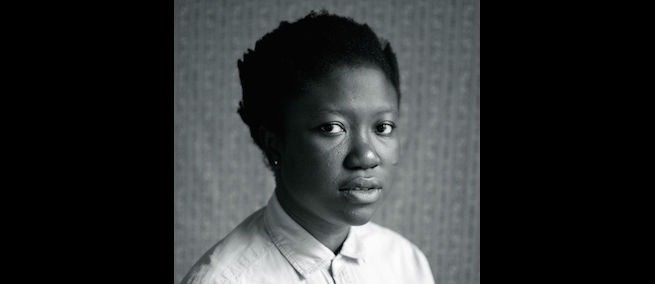
Writer/director Frances Bodomo has been recognized multiple times by the Sloan Foundation for her project Afronauts, beginning with a Sloan Short Film Production Grant from New York University in 2013. After premiering the short at Sundance in 2014, she received an award from the 2014 TFI Sloan Filmmaker Fund to develop the feature version of Afronauts. Sloan Science and Film sat down with Frances to discuss Afronauts and the challenges of bringing her story to the screen.
Sloan Science and Film: Can you tell our readers a little about yourself?
Frances Bodomo: I'm a filmmaker from Ghana who grew up moving around a lot (Norway, Hong Kong, USA). I've made two short films — Boneshaker (Sundance, SXSW, Telluride 2013) and Afronauts (Sundance, Berlinale, ND/NF 2014)—and I'm now working on the feature version of Afronauts. I was named one of Filmmaker Magazine's 25 New Faces of Independent Film last year.
SSF: What’s Afronauts about?
FB: Inspired by true events that occurred during the 1960s in Zambia, Afronauts follows a group of ingenious villagers who build a homemade rocket in a wild bid to join the Space Race. Our lead character is 17-year-old astronaut Matha Mwambwa, who must decide if she's actually going to get into the rocket as the camp joyfully moves towards blast off. It's a coming-of-age drama on both a national and personal scale.
SSF: What kind of science are we going to see in the film? Are you working with science advisors?
FB: I want to explore the longing for scientific reward from the perspective of those who seemingly do not have access to it. The Afronauts' technology is cobbled together, but it works. They make urine-fueled generators and telescopes from bean-tins. Afronauts removes science from the popular iconography of the laboratory and puts it in the shantytown. Bringing light to the current scientific spirit in Africa—the Invention Generation—is an exciting part of this project.
I'm working with Stan Rosly as a science advisor. He's really exciting to work with because he really gets into what can be done with the materials at hand. The Wright Brothers were just two men in a field with sticks and tarp before they invented the airplane. That same attitude serves the Afronauts as a jumping off point, rather than a barrier.
SSF: Tell me a little about some of the challenges you’re anticipating in bringing the film to the screen.
FB: The main challenge is shooting a low-budget film in Zambia, without the network I've built on this side of the Atlantic. But I think it's tantamount to the spirit of the film to dive in, find collaborators, shift the script according to what I learn, and work with majority Zambian actors & crew. There's a lot of new types of filmmaking going on in the region—even without the big infrastructure of South Africa—and I'm really excited about tapping into that, being a part of that community. It's a challenge, yes, but I see it more as an adventure.
SSF: What are your next steps to get there? How have the funds from Sloan helped?
FB: This film originated as a Sloan project with an NYU short film grant, and then the TFI Filmmaker Fund. These funds are allowing us the time and creative energy to make this into the fun, subversive, impactful film we want it to be. The next step is to complete a new draft of the film and take that to Zambia this summer to begin location scouts & initial casting.
FILMMAKERS
PARTNERS
TOPICS